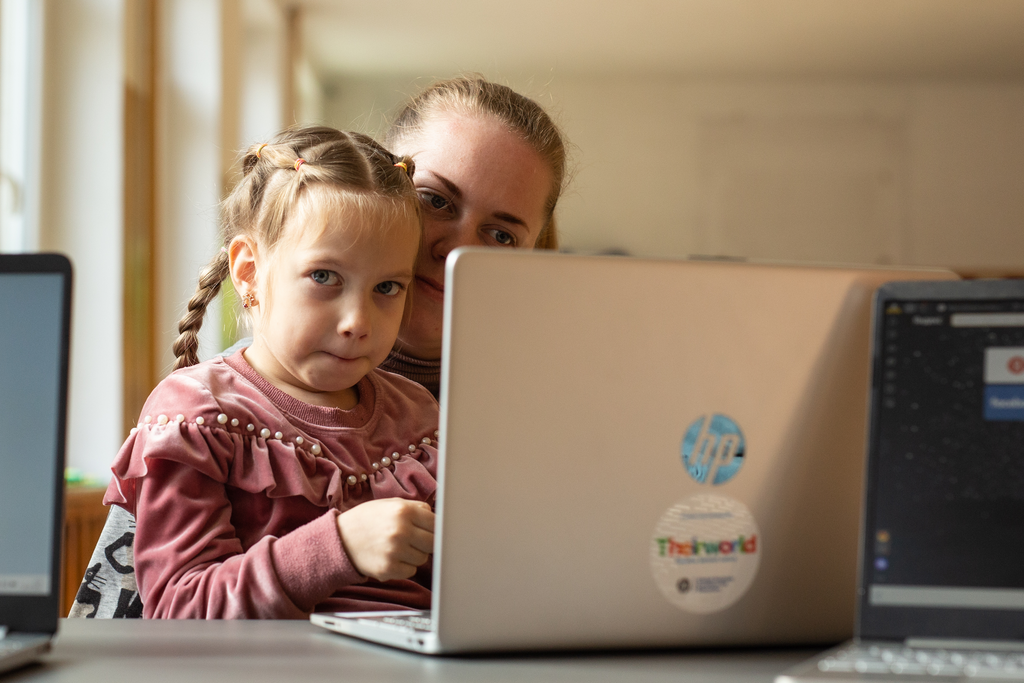
Resilience and Ingenuity: Young Ukrainians’ Experiences of Emergency Education

An investigation into how Ukrainian children and young people have responded to the immense disruption to their lives and their education. Authored by Veronika Skorobogatko and Juliette Bonnepart of OPORA Foundation.
Resilience and Ingenuity: Young Ukrainians’ Experiences of Emergency Education.
Introduction
February 24, 2023 marks the one-year anniversary of the full-scale Russian invasion of Ukraine. Amid widespread destruction and loss of life, schools and education have been severely damaged.
The Ministry of Education of Ukraine has estimated that by the end of January 2023, 3,098 educational institutions have been damaged by bombing and shelling, including 438 destroyed. The majority of those are located in the eastern and southern parts of Ukraine, but Kyiv and regions around the capital have also sufered badly.
As of January 2023, more than eight million Ukrainians have become refugees in other countries and more than fve million children inside and outside the country have had their education disrupted, according to the United Nations.
A core part of Theirworld’s mission is to find ways to support and improve the quantity and quality of education in conflicts and emergencies. Education is often overlooked by the humanitarian community when disaster strikes, but parents and children very often say it is the first thing they want restored once they have re-established a basic level of security.
We therefore decided to investigate how Ukrainian children and youths have responded to the immense disruption to their lives and their education, and what their experiences reveal about education in emergencies more broadly.
Interviews for this qualitative report were carried out with mothers, school children and university students in Ukraine, the Netherlands and the UK by the OPORA Foundation, which is based in the Netherlands and provides evidence-based policy, research and operational solutions for and regarding displaced people.
Interviews were conducted with:
- four Ukrainian mothers and their children who have stayed in Kyiv and the Kyiv region;
- a Ukrainian teacher who moved to the Rotterdam region of the Netherlands;
- two Ukrainian mothers who moved to the Netherlands with their children (five combined in total, aged five to 17) – living in Amsterdam and near Den Bosch;
- two Ukrainian teenagers of high school age, both from the west of Ukraine and now living in the Netherlands, one in Rotterdam and the other in Almere, near Amsterdam;
- three Ukrainian university students – two in the Netherlands, one in the UK;
- a Ukrainian architect living in Rotterdam;
- two Ukrainian professionals working for the non-governmental organisation Smart Osvita.
Part one of the report looks at how individuals and families have coped with adversity; part two looks at how Ukrainian students and young people have organised to help their counterparts, while part three looks at how civil society organisations have responded to fill gaps in education.
Interviews were conducted with mothers rather than men in the family due to ease of contact and communication. The names of children and some mothers quoted in the report have been changed at their request.
The report’s findings portray a picture of great resourcefulness, resilience and ingenuity, with digital and hybrid solutions high among the coping mechanisms for students, their families and teachers.
The findings raise possible opportunities for charitable and philanthropic organisations to further assist young Ukrainians, including: supporting Ukrainian Houses or organisations helping Ukrainian students settle in a new country, and providing digital resources and capacity.
However, the responses of young Ukrainians carry warnings about young people’s vulnerabilities and the necessity for the international community and nations hosting displaced people to remain vigilant to their needs.
Theirworld and the Global Business Coalition for Education’s work to support the education of refugee and displaced Ukrainian children is made possible thanks to the generous support of players of the National Postcode Lotteries, HP Inc., and Microsoft.
Next resource
